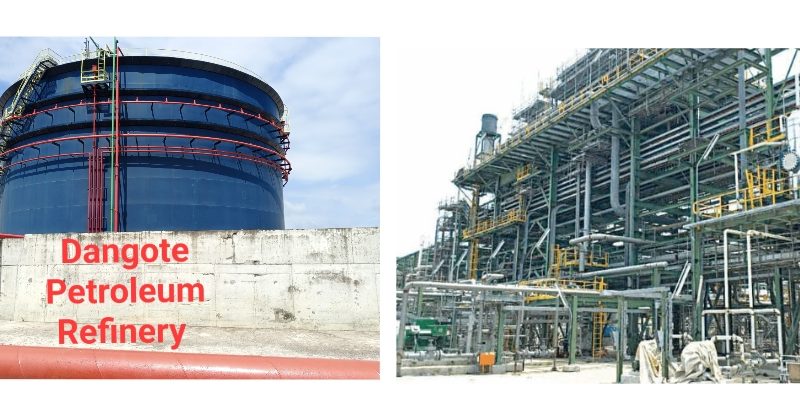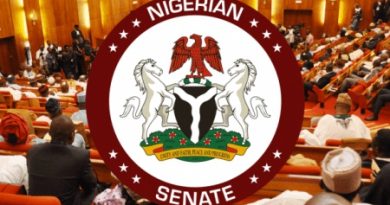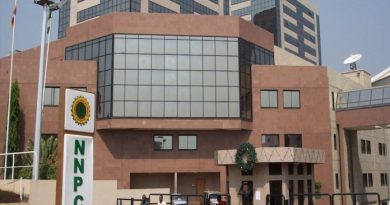NIGERIA AT CROSSROADS: The Dangote Refinery Dilemma
Perspectives with Dr. Iyke Ezeugo
The Symbol of Nigeria’s Economic Aspirations
In a nation where the paradox of wealth amidst poverty is striking, the Dangote Refinery emerges as a monumental investment aimed at transforming Nigeria’s oil industry. Valued at $20 billion, this refinery is the largest single-train refinery in the world, with a capacity to process 650,000 barrels of crude oil per day. The vision behind this ambitious project, spearheaded by Aliko Dangote, Africa’s richest man, is to end Nigeria’s dependence on imported petroleum products, secure energy sovereignty, and catalyze industrialization.
However, the promise of this monumental project is under siege. The very entities that should be championing its success—particularly the Nigerian National Petroleum Company Limited (NNPC), petroleum product merchants, and certain government officials—seem more interested in maintaining the status quo. This is a status quo that has left the country mired in fuel scarcity, economic stagnation, and a dependency that drains billions from the national coffers annually.
A Strategic Investment Thwarted by Vested Interests
The Dangote Refinery was envisioned as a solution to Nigeria’s chronic fuel importation crisis. By refining crude oil domestically, the refinery would not only ensure a stable supply of fuel but also save Nigeria billions in foreign exchange. It promised thousands of jobs, improved fuel quality, and strengthened energy security.
Yet, the refinery is embroiled in a battle for survival—not against foreign competition, but against domestic sabotage. The NNPC, which controls crude oil supply and refined product distribution, has refused to supply the Dangote Refinery with crude, forcing the refinery to look abroad for its feedstock. This increases operational costs and undermines the refinery’s ability to meet local demand.
Moreover, there are reports that local oil traders and certain government-affiliated entities are actively blocking the sale of Dangote’s refined products within Nigeria. These groups, long beneficiaries of the lucrative fuel importation business, are lobbying to maintain their control, even at the expense of national progress. The Depot and Petroleum Products Marketers Association of Nigeria (DAPPMAN), fearing for their profits, have gone as far as petitioning the President to bar Dangote from the local market until government refineries, long dormant and decrepit, are operational.
National Embarrassment and Global Scrutiny
The recent actions of Farouk Ahmed, CEO of the Nigerian Midstream and Downstream Petroleum Regulatory Authority (NMDPRA), have further tarnished the nation’s reputation. Ahmed sparked controversy by demarketing Dangote Refinery’s diesel as inferior due to high sulfur content, despite the refinery meeting international standards. This move is seen as a national embarrassment and a clear indication of vested interests in perpetuating the oil sector’s status quo. Rather than regulate and support the industry, Ahmed’s organization appears to be protecting the interests of fuel importers and stifling Nigeria’s progress toward self-sufficiency in fuel production.
Economic Sabotage: A Betrayal of National Interest
The actions of some within the NNPC, its allies among petroleum product marketers, and certain government officials are nothing short of economic sabotage. Their stranglehold on the oil sector, marked by deliberate demarketing and false narratives about the Dangote Refinery—particularly by Engr. Farouk Ahmed—threatens to derail a project that could save Nigeria $15 billion annually in foreign exchange and generate significant tax revenue. Their actions perpetuate fuel shortages, exacerbate price hikes, and weaken Nigeria’s energy security.
The implications of these actions are far-reaching:
– Lost Revenue: Nigeria forfeits billions of dollars in potential revenue by preventing the Dangote Refinery from operating at full capacity.
– Job Losses: The refinery could create thousands of direct and indirect jobs, which are now in jeopardy due to the sabotage.
– Continued Dependence: Nigeria remains at the mercy of global oil markets, vulnerable to price fluctuations and geopolitical tensions.
– Economic Stagnation: Investors, witnessing the treatment of Dangote—a figurehead of Nigerian industry—may hesitate to invest in the country, fearing similar obstruction.
Breaking Down Barriers: The Uphill Battle for the Dangote Refinery’s Success
As Nigeria eagerly awaits the transformative impact of the Dangote Refinery’s operations, a complex web of regulatory hurdles, NNPC’s dominance, the actions and utterances of its leadership, government inertia, and industry sabotage threatens to stifle the project’s potential. To unlock the refinery’s full benefits, Dangote must navigate this treacherous landscape, where:
– Regulatory frameworks and NNPC’s influence limit market access and warehousing storage.
– Quality standards and pricing regulations can be manipulated to favor NNPC’s products.
– Licensing and approvals can be delayed or denied, hindering operations.
– Exporting products becomes a necessity, rather than selling locally.
To overcome these obstacles, the Nigerian masses must unite with Dangote Refinery to:
– Advocate for the unhindered supply of crude oil to Dangote Refinery to ensure sufficient raw materials for full-capacity operations.
– Insist on a level playing field and fair market practices so that refined products can be made available to Nigerians without manipulation.
– Form strategic partnerships to strengthen the refinery’s position.
– Explore alternative revenue streams to reduce dependence on the domestic market.
Until the government, NNPC, and industry regulators address these challenges, the Dangote Refinery’s success will remain elusive, and Nigerians will be denied the full benefits of this game-changing project. The time for action is now—will the stakeholders rise to the occasion?
The Deafening Silence of the Government
The government’s inaction in the face of these challenges is alarming. President Bola Tinubu’s administration has yet to fully address the roadblocks placed in front of the Dangote Refinery, raising questions about its commitment to economic self-reliance and the welfare of its citizens. *The silence suggests complicity or, at best, indifference to the plight of Nigerians who continue to suffer under the burden of high fuel prices and frequent shortages.*
The fear of a Dangote monopoly, often cited by those opposing the refinery, is a red herring. If the government is concerned about competition, it should focus on reviving its own refineries and supporting other investors to build theirs. The current approach, however, only serves to stifle competition and maintain Nigeria’s harmful dependency on imported fuel, controlled by the NNPC and its allies. If legal barriers exist, President Tinubu can issue executive orders to close the gaps and save the nation from this strangulation.
The Way Forward: Securing Nigeria’s Economic Independence
The Dangote Refinery represents a bold step toward Nigeria’s economic sovereignty. The government must act swiftly to dismantle the obstacles hindering its operation. *This includes ensuring that crude oil is supplied to the refinery and that its products are sold locally.* Such actions will not only stabilize fuel prices but also improve the quality of life for millions of Nigerians.
Furthermore, the government should hold NNPC accountable for its anti-competitive behavior and promote a more open and competitive petroleum sector. Only by doing so can Nigeria break free from the chains of dependency that have shackled its economy for decades.
Consequences of Failure
Should the Dangote Refinery be forced into partial or complete failure, the consequences for Nigeria would be dire. The country would continue to hemorrhage billions of dollars on fuel imports, worsening the already critical foreign exchange crisis. Investors, both domestic and international, would lose confidence in Nigeria’s market, seeing it as hostile to innovation and enterprise. This loss of confidence could trigger a broader economic downturn, affecting every sector of the economy.
Moreover, the social impact cannot be understated. Continued fuel scarcity and high prices would exacerbate poverty, increase unemployment, and strain public services. The opportunity to set Nigeria on a path to energy independence and industrial growth would be lost, perhaps for decades.
A Call to Action
The battle for Nigeria’s economic future is not just about one refinery; it is about the nation’s ability to rise above its challenges and take control of its destiny. The Dangote Refinery is a key to unlocking Nigeria’s potential, but it requires the support of a government willing to put national interest above all else.
President Bola Tinubu must now choose between upholding the interests of a powerful few or embracing the opportunity to secure a prosperous future for all Nigerians. The time for decisive action is now.
Dr. Iyke Ezeugo is a Forensic Researcher, a Social Impact Expert, and Satirist who uses his perspectives and parodies to challenge the status quo, spark debates, and inspire fresh perspectives on public affairs through insightful intellectual injections._




